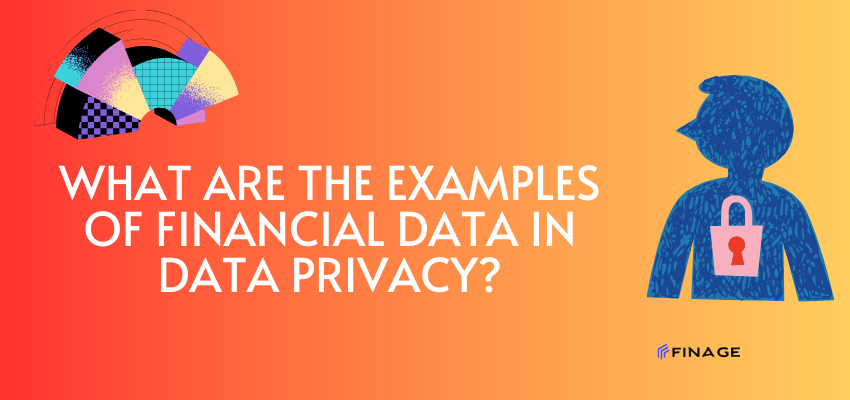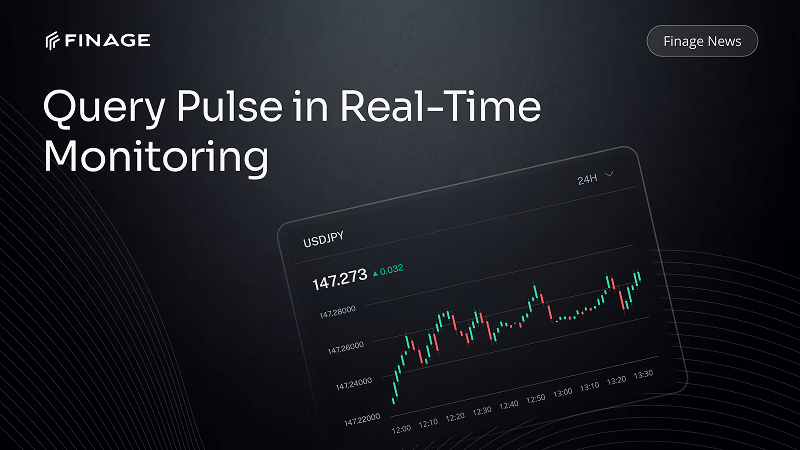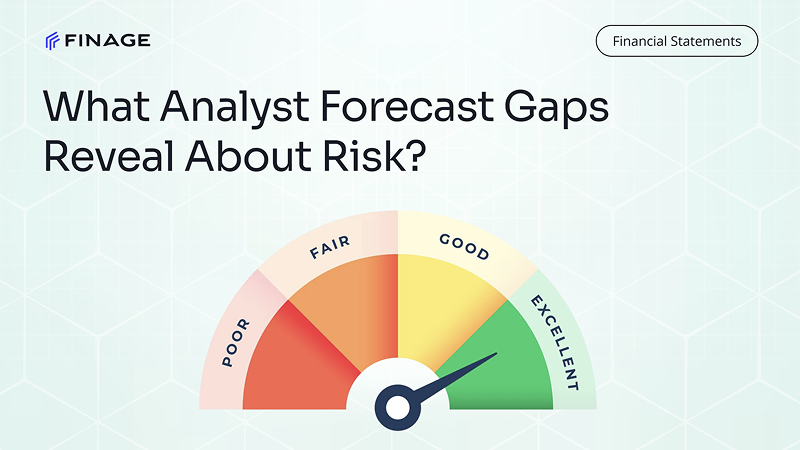What are the Examples of Financial Data in Data Privacy?
7 min read • October 25, 2024

Introduction
In the digital age, financial data has become one of the most sensitive and highly protected types of information. As monetary transactions increasingly occur online and data collection becomes more sophisticated, safeguarding this information has never been more crucial. Financial data privacy is essential to prevent unauthorized access, identity theft, and other cyber threats. However, as organizations collect and use more economic data, they must comply with data privacy regulations to ensure users’ financial information remains secure.
Understanding what constitutes financial data is essential for both businesses and individuals. From bank account numbers to investment details, financial data covers a wide range of information that, if compromised, could have serious consequences. This article will explore examples of financial data in the context of data privacy, why they are sensitive, and how regulations help protect these crucial data points.
Contents
- What is Financial Data?
- Examples of Financial Data in Data Privacy
1. Bank Account Information
2. Payment Card Information
3. Transaction Histories
4. Investment Details
5. Personal Identifiable Financial Information (PIFI)
6. Credit Scores and Credit Reports
7. Insurance Records
- Why Financial Data Privacy is Crucial
- Data Privacy Regulations Protecting Financial Data
- Conclusion
What is Financial Data?
Financial data refers to any information that relates to a person’s financial activities, status, or assets. This data can be used to make decisions about an individual’s financial standing and includes details that directly impact personal privacy and security. Financial data can come from various sources, including banks, credit card companies, investment firms, and insurance providers.
Because of its sensitivity, financial data is protected by various data privacy laws that require organizations to secure personal financial information, limit its usage, and restrict unauthorized access.
Examples of Financial Data in Data Privacy
The scope of financial data is broad, encompassing a range of information types that are highly sensitive and require protection. Here are some examples of financial data that are crucial to data privacy.
1. Bank Account Information
Bank account information includes account numbers, bank branch details, and routing numbers, which are critical for conducting financial transactions. This data is essential for identifying a specific account within a bank and is commonly used in wire transfers, direct deposits, and online banking.
Why It’s Sensitive: Unauthorized access to bank account information can lead to fraudulent transactions, account hijacking, and unauthorized withdrawals, potentially resulting in financial losses for the individual.
2. Payment Card Information
Payment card information, including credit card and debit card numbers, expiration dates, and security codes (CVV), is one of the most commonly targeted types of financial data in cyber attacks. This data is frequently used in online and in-store purchases, making it a valuable asset for hackers.
Why It’s Sensitive: If payment card information is exposed, it can be used for unauthorized purchases, leading to financial loss and identity theft. Regulations like PCI DSS (Payment Card Industry Data Security Standard) exist to protect cardholder data and prevent breaches.
3. Transaction Histories
Transaction histories detail an individual’s spending and income patterns, including purchase details, amounts, dates, and vendor information. Transaction history can be accessed by financial institutions, online payment platforms, and, in some cases, shared with third-party service providers for analysis.
Why It’s Sensitive: Transaction histories reveal a person’s financial behavior, habits, and preferences. If this data falls into the wrong hands, it can be exploited to profile individuals, sell targeted ads, or even use the information for social engineering attacks.
4. Investment Details
Investment details include information about an individual’s stocks, bonds, mutual funds, retirement accounts, and other financial assets. This data may contain specifics like portfolio composition, gains and losses, trading history, and investment strategies.
Why It’s Sensitive: Investment details can reveal an individual’s wealth and financial strategy, making them a fraudster target. Furthermore, investment data is essential to an individual’s long-term financial planning, and exposure can lead to reputational or economic harm.
5. Personal Identifiable Financial Information (PIFI)
Personal Identifiable Financial Information (PIFI) combines both personal data (like name, Social Security number, address) with financial information (like income, tax status, and employment history). This category is often used by banks and credit agencies to verify identities and assess financial health.
Why It’s Sensitive: PIFI is a primary target for identity thieves as it provides all the information needed to impersonate someone financially. It’s heavily protected by privacy regulations like GLBA (Gramm-Leach-Bliley Act) and GDPR (General Data Protection Regulation).
6. Credit Scores and Credit Reports
Credit scores and credit reports are records of an individual’s creditworthiness, based on their history of borrowing and repaying loans. These reports typically include information on debts, payment history, open accounts, and inquiries made by lenders.
Why It’s Sensitive: A credit report provides an in-depth look at an individual’s financial health, and a low score can impact one’s ability to obtain loans, rent property, or even secure employment. Unauthorized access to credit reports can lead to credit fraud and financial exploitation.
7. Insurance Records
Insurance records include personal data related to health, life, and property insurance policies. This can encompass policy numbers, claims history, beneficiaries, and coverage details.
Why It’s Sensitive: Insurance records contain sensitive financial and personal information, often used to calculate risk and determine premium costs. If accessed by unauthorized parties, insurance records could be exploited for fraud, impacting an individual’s coverage or premiums.
Why Financial Data Privacy is Crucial
Protecting financial data is essential for several reasons:
1. Prevents Identity Theft and Fraud
Financial data, especially when combined with personal information, is often targeted by cybercriminals aiming to steal identities or commit financial fraud. Protecting this data helps prevent unauthorized transactions, loan fraud, and other malicious activities.
2. Maintains Trust in Financial Institutions
Consumers trust financial institutions with their most sensitive information, expecting that it will be protected. Ensuring financial data privacy fosters trust and confidence among customers, which is essential for the longevity of any financial organization.
3. Complies with Legal and Regulatory Requirements
Financial institutions are legally required to comply with data privacy regulations that mandate strict data protection standards. Non-compliance can result in hefty fines and reputational damage. Laws such as GDPR, GLBA, and PCI DSS enforce privacy standards to protect consumer data.
4. Protects Financial Health and Security
Financial data privacy is critical to an individual’s financial security and health. Exposed data can lead to unauthorized transactions, loan fraud, or manipulation of credit scores, which could impact future financial opportunities.
Data Privacy Regulations Protecting Financial Data
Various data privacy laws have been implemented to protect financial data and regulate how organizations handle it. Some prominent regulations include:
GDPR (General Data Protection Regulation): GDPR protects personal data for individuals in the European Union and applies to companies globally if they process EU citizens’ data. Financial data is highly regulated under GDPR, requiring organizations to secure this data and report any breaches.
GLBA (Gramm-Leach-Bliley Act): The GLBA mandates that U.S. financial institutions must protect customer information and explain their information-sharing practices. It also requires them to safeguard sensitive data against unauthorized access.
PCI DSS (Payment Card Industry Data Security Standard): PCI DSS is an industry standard that sets requirements for handling credit card data, including encryption and other security measures to prevent breaches.
CCPA (California Consumer Privacy Act): The CCPA gives California residents the right to know what personal data is collected about them, including financial data, and how it is shared or sold. It also provides the right to delete personal information under certain conditions.
Each of these regulations enforces strict standards around data privacy, aiming to protect consumers’ financial information and hold organizations accountable for data breaches.
Conclusion
Financial data, from bank account numbers to transaction histories and credit reports, represents some of the most sensitive information that individuals and organizations handle. In a world where digital transactions and data collection are increasing, protecting this data is essential to ensure privacy, prevent fraud, and maintain trust.
Regulations like GDPR, GLBA, and PCI DSS help protect financial data, but companies also bear responsibility for implementing robust security measures. By understanding what types of financial data require protection and why data privacy matters, organizations can better safeguard sensitive information and navigate the complex landscape of data privacy in today’s financial ecosystem.
You can get your Real-Time and Historical Market Data with a free API key.
Build with us today!
Claim Your Free API Key Today
Access stock, forex and crypto market data with a free API key—no credit card required.

Stay Informed, Stay Ahead
Finage Blog: Data-Driven Insights & Ideas
Discover company news, announcements, updates, guides and more

.png)
